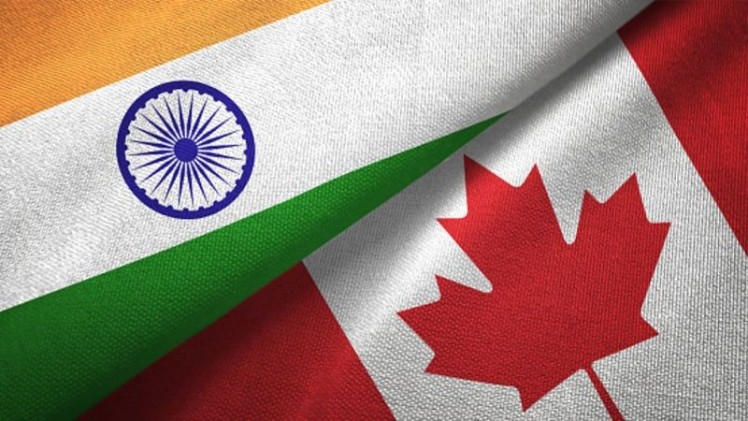India and Canada are exploring the possibility of mutually recognizing their respective food certification systems in order to facilitate seamless export and import of food products. This initiative comes in light of the growing Indian diaspora in Canada. In a recent development, a delegation from India, led by representatives from the Food Safety and Standards Authority of India (FSSAI), participated in the 47th session of the Codex Committee on Food Labelling in Québec, Canada.
During the session, the Indian delegation met with the Indian High Commissioner to Canada, Sanjay Kumar Verma, to discuss various issues related to harmonization with Codex standards, import and export of food items, and the export of traditional Indian food products, considering the significant and expanding Indian population in Canada.
The FSSAI, in a statement issued on May 25, mentioned that the high commissioner is expected to meet with the President of the Canadian Food Inspection Agency (CFIA) soon to discuss the mutual recognition of the food certification system. They also emphasized the need for mutual recognition of selected food testing laboratories in both countries to facilitate the trade of food products.
India and Canada Seek Mutual Recognition of Food Certification Systems to Enhance Trade
The Codex Alimentarius Commission (CAC), established jointly by the Food and Agriculture Organization (FAO) and the World Health Organization (WHO), is an international food standards body that aims to protect consumers’ health and ensure fair practices in food trade. The core Codex texts cover various aspects such as hygienic practices, labelling, contaminants, additives, inspection and certification, nutrition, and residues of veterinary drugs and pesticides. These standards apply horizontally to different products and categories.
One of the key areas being considered for Indian exports is the adherence to food labelling norms, including the use of new technologies in labelling, labelling of food allergens, and labelling for e-commerce. India has previously signed a memorandum of understanding (MoU) with Canada to mutually recognize food laboratories in both countries, highlighting the importance of maintaining food safety standards effectively.
In a recent development, the Union Health Minister of India, Mansukh Mandaviya, inaugurated the state-of-the-art National Training Centre (NTC) for the FSSAI. Mandaviya emphasized the significance of good quality and nutritious food in disease prevention and highlighted the role of NTC in ensuring the implementation of quality standards for food in the country.
The NTC aims to provide structured instruction, practice, and learning experiences to bridge the gap between existing knowledge or skills and desired knowledge or skills in the field of food safety and standards. As per the Food Safety and Standards Act, 2006, and the Food Safety and Standards Rules, 2011, the FSSAI is responsible for providing training to individuals involved in food businesses, including operators, employees, food safety officers, and designated officers.
Recognizing the importance of continuous skill upgrading for officials, food business operators, and other stakeholders, the establishment of the National Training Centre by the FSSAI fills the void that previously existed. It ensures the development of a future-ready workforce committed to ensuring safe and wholesome food for the citizens of India.
The efforts made by India and Canada to explore the mutual recognition of their food certification systems and enhance trade signify the commitment of both nations to promote bilateral cooperation and streamline the process of exporting and importing food products. This initiative not only facilitates economic growth but also emphasizes the importance of food safety and quality standards in ensuring the well-being of consumers.
India and Canada Form a Dynamic Alliance to Streamline Food Trade Regulations

In a bid to bolster food trade and strengthen bilateral ties, India and Canada are actively pursuing the mutual recognition of their respective food certification systems. This collaborative effort aims to facilitate the seamless export and import of food products, with a particular focus on addressing the needs of the growing Indian diaspora residing in Canada. Recent developments have seen a delegation from India, led by representatives from the Food Safety and Standards Authority of India (FSSAI), participate in the 47th session of the Codex Committee on Food Labelling in Québec, Canada.
During the session, the Indian delegation engaged in constructive discussions with the Indian High Commissioner to Canada, Sanjay Kumar Verma. The discussions covered a wide range of issues, including harmonization with Codex standards, the import and export of food items, and the specific export of traditional Indian food products. With a significant and expanding Indian population in Canada, the emphasis was placed on catering to the unique culinary preferences and cultural heritage of this community.
The FSSAI, in a statement released on May 25, revealed that the high commissioner is expected to hold a meeting with the President of the Canadian Food Inspection Agency (CFIA) in the near future to discuss the potential for mutual recognition of the food certification system. Additionally, the need for mutual recognition of select food testing laboratories in both countries was underscored, as it would greatly facilitate the smooth flow of food products between India and Canada.
The Codex Alimentarius Commission (CAC), established jointly by the Food and Agriculture Organization (FAO) and the World Health Organization (WHO), plays a pivotal role in setting international food standards. Its primary objectives are to safeguard consumer health and ensure fair practices in food trade. The core Codex texts cover a broad spectrum of topics, including hygienic practices, labelling, contaminants, additives, inspection and certification, nutrition, and residues of veterinary drugs and pesticides. These standards are designed to be applicable to diverse products and categories, promoting consistency and quality across the food industry.

